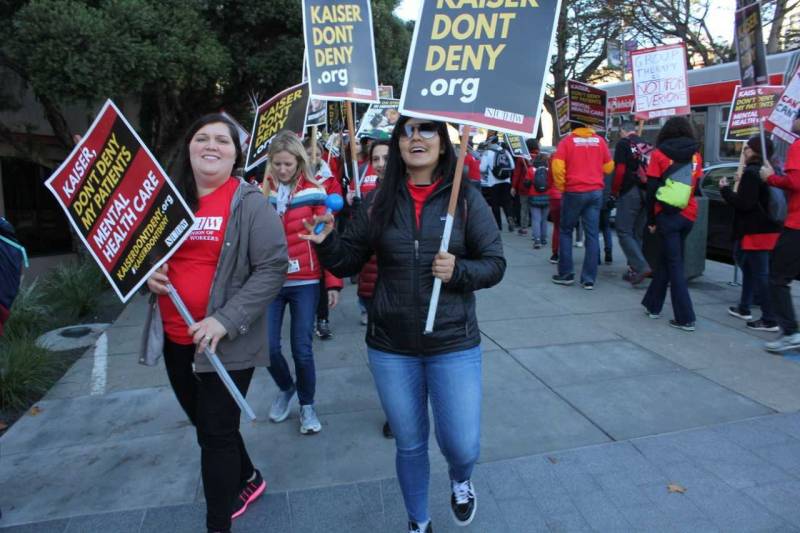Four thousand mental health clinicians are walking off their jobs at Kaiser Permanente today, affecting care at more than 100 clinics across the state. The week-long strike is the second in a year, as the workers’ union and Kaiser management remain deadlocked on a new contract.
Therapists’ main complaint is long wait times for patients. While industry best practice is to see clients every one to two weeks, the majority of Kaiser clinicians say their patients with anxiety and depression are forced to wait four to eight weeks between appointments.
“That is substandard care, that is unethical care and that is dangerous care,” said Mickey Fitzpatrick, a clinical psychologist at Kaiser in Pleasanton. “That increases the risk of suicide and, indeed, people have taken their lives.”
They're asking Kaiser to hire more therapists to reduce wait times and ease the workload on employees. They also want higher wages and more time to complete administrative tasks.
Under the current contract, Fitzpatrick said he sees four to five new patients every week, in addition to all his current patients. Unlike therapists in private practice, Fitzpatrick can not turn patients away or tell them he doesn’t have room to see them.

